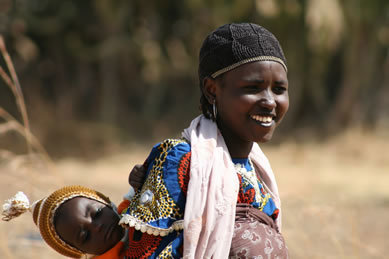WASHINGTON, D.C., February 12, 2018 (C-Fam) – A State Department report released February 8 found wide acceptance of the expanded Mexico City Policy which blocks funding for foreign groups performing or promoting abortion overseas. The report surveyed organizations which receive U.S. funds to deliver health care to vulnerable populations overseas.
The expanded policy, called “Protecting Life in Global Health Assistance (PLGHA),” was instituted by President Donald Trump in January 2017 and extends the policy to the $8.8 billion in funds appropriated for global health assistance through Department of State, U.S. Agency for International Development (USAID), and the Department of Defense (DoD).
Since the announcement last year, abortion advocates coalesced to attack the Trump administration with charges that health care delivery would flag and women’s health would be drastically reduced.
The State Department report contradicts these allegations, however, finding that as grants and contracts have come under review to renew funding nearly all prime partners have accepted the policy. Just four organizations refused to comply with the abortion ban out of 733 awardees.
Two of the non-compliance organizations are global abortion providers Marie Stopes International and the International Planned Parenthood Federation (IPPF). Both organizations have bilateral USAID grants that would have gone through 2019 for approximately $30 million. USAID will direct the funds to other groups in the same areas, “transition[ing] the activities of those organizations that have not agreed to the PLGHA standard provision to other partners, while minimizing disruption of services.”
USAID also reported 12 sub-grantee recipients that refused to comply. IPPF reports to work in 170 countries with hundreds of affiliated organizations. These foreign affiliates stand to lose funding as sub-grantee recipients from the multimillion-dollar prime grants awarded to U.S. organizations like EngenderHealth, Pathfinder International, PAI, and Population Services International – all publicly opposing the institution of the Mexico City Policy. While the PLGHA abortion restrictions do no apply to U.S. registered organizations it does restrict the funding these organizations award to foreign sub-grantees.
According to the report, the Department of State, USAID, HHS, and DoD “have taken multiple steps to implement the PLGHA policy.” A standard provision was developed which is being included in grants and cooperative agreements for global health assistance including for PEPFAR, the Bush-era HIVAIDs initiative. Training to ensure compliance is ongoing for all stakeholders including interagency government personnel, U.S. Mission staff, and non-government organizations.
Under the standard provision of PLGHA, prime organizations and their sub-grantees are restricted from using any funding whether U.S. funding or an organization’s own funding to lobby “a foreign government to legalize or make available abortion as a method of family planning” or “conducting a public information campaign in foreign countries regarding the benefits and/or availability of abortion as a method of family planning.”
The standard provision requires awardees to agree to oversight and transparency to assure compliance. The recipient must acknowledge the State Department can at any “reasonable time, announced or unannounced” conduct onsite inspections including “independent inquiries in the community served by the recipient.” Violations of PLGHA will result in termination of an award with reimbursement of any unexpended funding to the State Department.
Exempt from PLGHA guidelines is funding for abortion due to rape, incest, or life endangerment of the mother. Also exempt is medical treatment for an induced or spontaneous abortion.
The State Department implementation report acknowledged that “not all existing agreements have received new funding, so the picture on progress and challenges is still developing.” A further review will be conducted by December 15, 2018 when the remaining 500 organizations with current agreements will come under renewal.
Reprinted with permission from the Center for Family & Human Rights (C-Fam).

